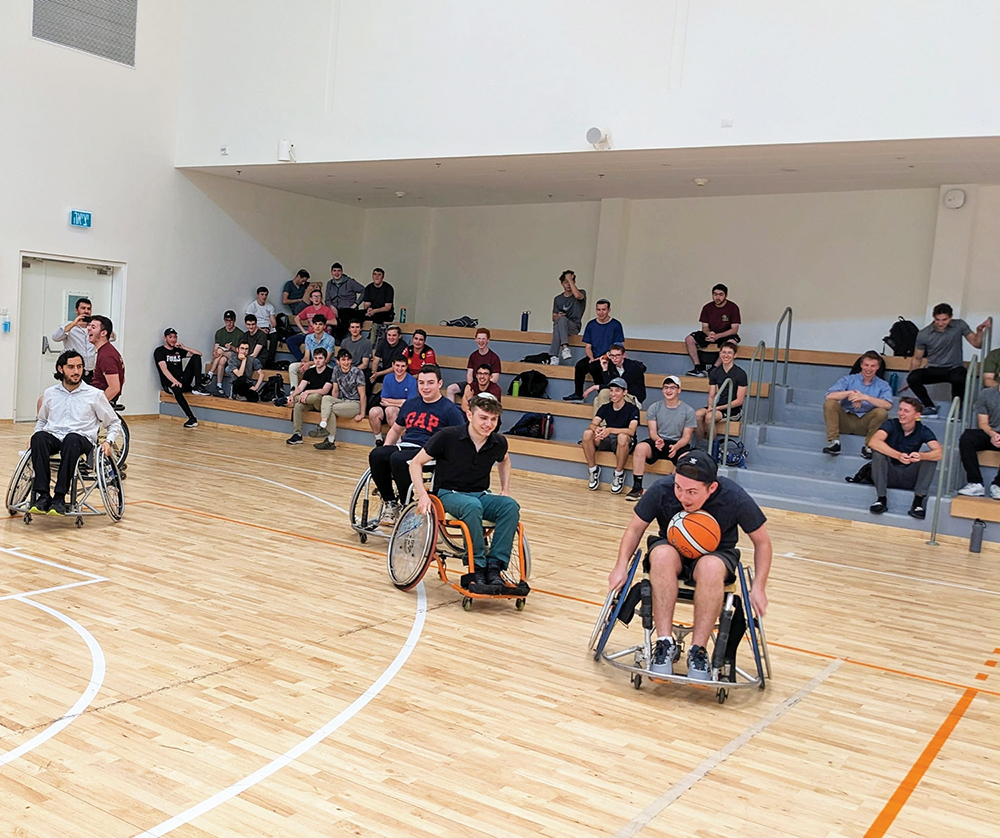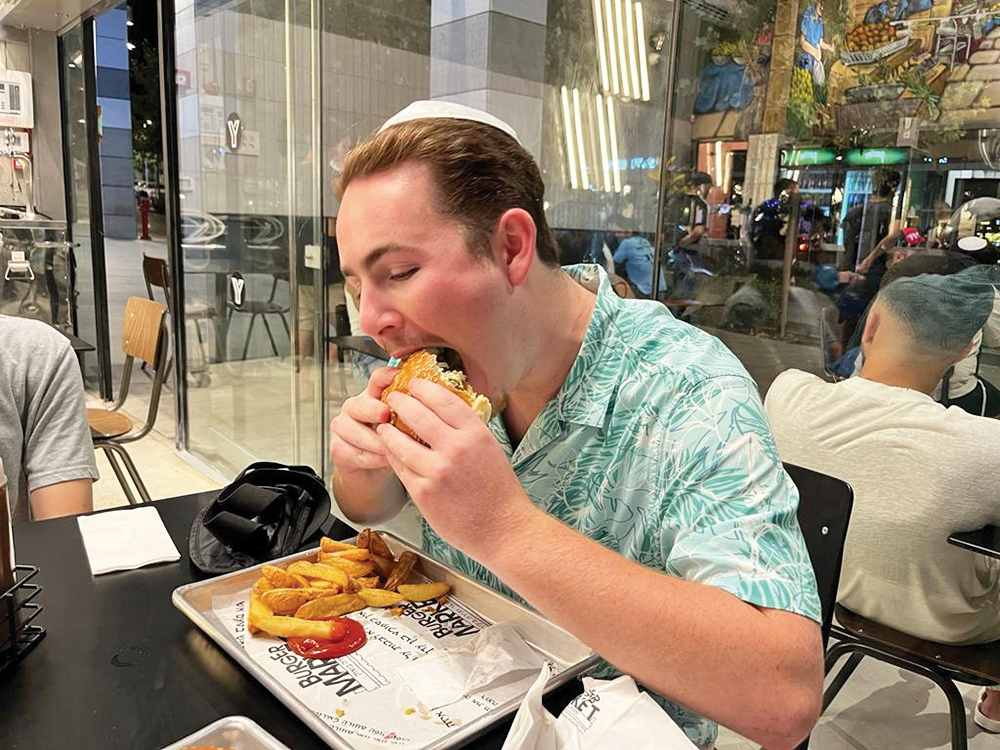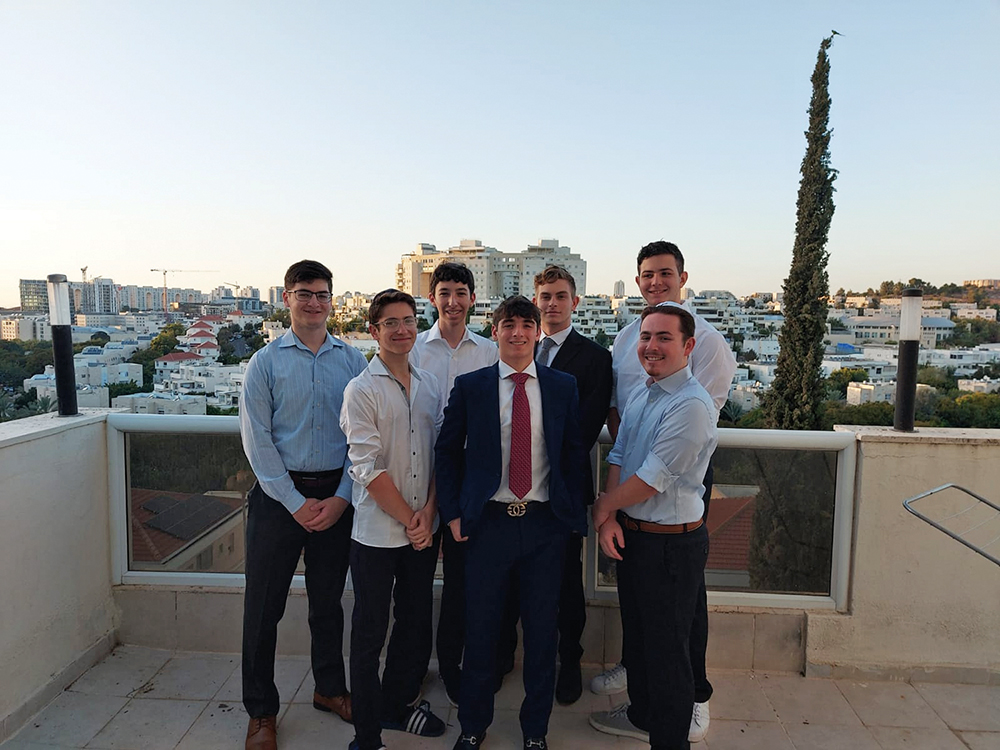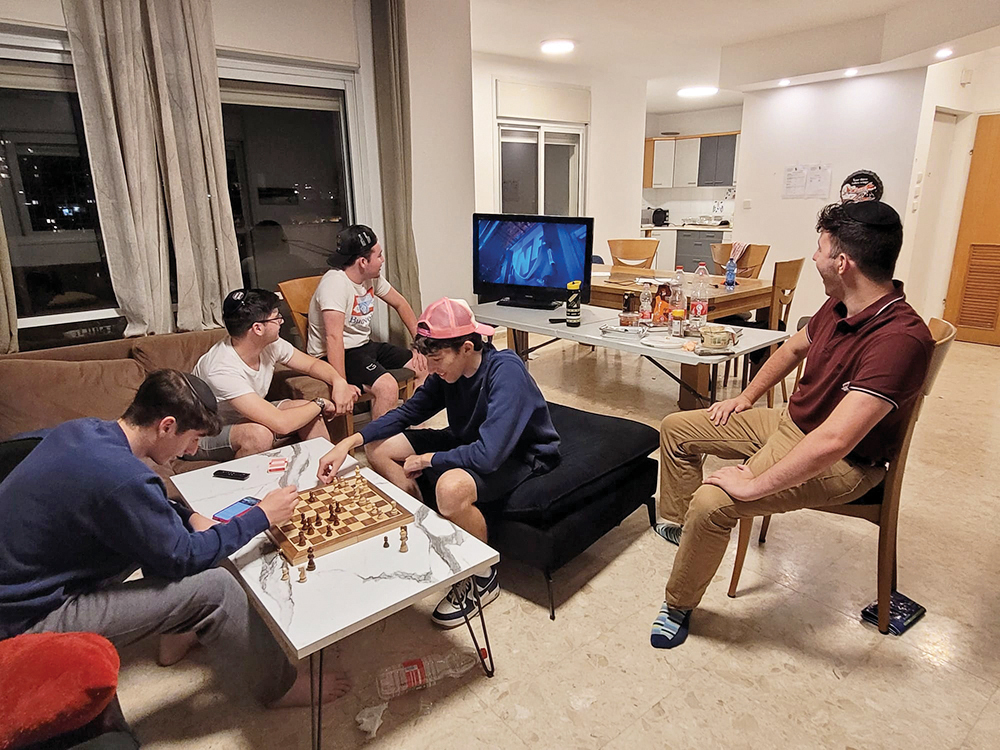
Elijah Berman is currently discovering what it means to be independent, both in thought and in life at Yeshivat Migdal HaTorah in Modi’in, Israel. Elijah was born in Riverdale but moved to the German Colony in Yerushalayim until the fourth grade when his family moved back to Riverdale, where they continued davening at the Riverdale Jewish Center. He finished elementary school at Manhattan Day School before going to MTA for high school. After yeshiva he will be continuing his studies at George Washington University.
Why were you drawn to Migdal and what makes it different from all the other programs you considered?
Migdal’s respect for secular knowledge, and the fact that other Yeshiva’s will push you in a certain direction. Migdal lets you figure it out for yourself and they will help make it work.
Some of my teachers in the past have said that secular knowledge is a distraction from Talmud study, which was disturbing. At Migdal all knowledge is meaningful, and helps you understand Hashem’s world. It all helps you become a thinker which helps to interpret Gemara and other Judaic studies. Also, Migdal doesn’t just teach, it teaches and then shows you how to use those skills in every other area you learn.

What about the independence have you found so enjoyable?
This past Shabbat my roommates and I all worked together to buy food for Shabbat, and we all just stayed in the apartment. My friend from another yeshiva came for Shabbat because he was forced out of the dorms for Shabbat, but Migdal gives us apartments and the freedom to become independent adults. We have a very nice apartment that we are responsible for maintaining, but in return we are treated like adults and will never be kicked out with no place to go.
What has been your favorite class in Migdal so far?
I love my philosophy elective with Rabbi Ginsberg, but in particular I really enjoy my Tanach core with Rav Weisz and Rav Ashi. We take an approach to Tanach that we don’t get in elementary school. It’s similar to how we learn Gemara. First we have hachana with our chavruta where we come up with questions and then have a discussion with the rebbeim. It’s very fresh to have it not taught as a lawbook or just stories. Tanach is what we got at Har Sinai, and this approach gives it the respect that it deserves.
Are there any rebbeim you connect with?
Rav Ashi. He’s around all the time and I like his shiurim. It is always an interesting shiur from a wide range of topics. He can talk about anything from mussar to philosophy. He’s also very warm and probably the nicest person I have ever met. I really feel like I can talk to him about anything and get good advice, no matter where I am at in life.

What were your expectations going into Migdal and how have they differed from your actual experience at Migdal?
I expected to be surrounded by people like me, people who want to learn and grow in all areas of knowledge. I expected to be respected for who I am, what I have done so far, and what I have left to learn. I didn’t want to have to start from scratch and for my yeshiva to assume I didn’t know anything. My expectations pretty much match the reality here. I think Migdal presented themselves very well at their presentation and you know exactly what you’re going to get when you come.
Do you have any goals for the year that you would like to share?
Coming in, I knew that I wanted to learn a lot of Tanach. Israel is the land where almost all of the stories happened, so there is definitely a higher level of learning those stories when actually in Israel. I know that Migdal has a strong emphasis on giving every student a Tanach background so I am very excited to gain a greater appreciation of Tanach that I hope will carry on into college.
Outside of learning, what else do you enjoy doing in Israel?
I’ve really loved going out with my new friends and discovering parts of the country that I’ve never been to before even though I used to live here. As a kid I mostly stayed in the German Colony, so being able to explore the rest of Jerusalem and the city of Tel Aviv with my friends is really cool.
What does a typical Shabbat look like for you?
I have a lot of family friends in Modi’in who I can go to. We don’t get kicked out of our apartment. I can sleep there with my friends and then go to my family friends for lunch if I want to. So that’s going to be really nice since I’ll have my own room and bed, but also get to catch up with people and have good food without having to travel so far. It works out because I really like my roommates and we all agree we want to stay in a lot to hang out. So I’ll probably be doing that a lot.

What has been the highlight of your year so far?
Our chesed trip to Adi Negev. They offer a unique and innovative approach to how to care for people with disabilities and special needs. Adi Negev isn’t just a facility but a real home where the individuals there have a lot of independence. It made you really appreciate Israeli innovation to see that it is not just tech startups in Tel Aviv, but a warm and caring community in the Negev. There is nothing anywhere in the world like Adi Negev.
How do you think Migdal fits your personality and your own philosophical outlook?
Migdal lets you do your own thing, and I think everyone should be allowed to do their own thing. Migdal allows for individual beliefs without having the expectation of everyone following a mainstream opinion. As long as you are learned in the sugya, and have a valid basis for the opinion you follow, you will be respected. Many rabbis have different opinions, and everyone’s beliefs are respected.
How do you think this year will prepare you for the rest of your life?
I think it’s going to give me the skills that allow me to live on my own and balance studying while taking care of myself. I am also learning philosophy, which is the building block of all knowledge and important in its own right, but it’s also teaching me critical thinking skills that apply to every field.
Sam Savetsky, of Bergenfield, is a Shana Bet student currently studying at Yeshivat Migdal HaTorah in Modi’in.








